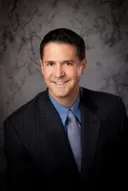Why Many Experienced Physicians Prefer Smaller Communities

Sean Pavone/123RF.com
The trajectory of a medical career is steep, and the pace from residency forward is frenetic. Many a physician adopts this pace as standard and accepts the flow of the profession's current.
Fast forward several decades and those initial decisions may no longer serve well. The flexibility of a medical career allows geographic mobility and a wealth of choices. While the reasons are individual, what follows are a few thoughts on why more experienced physicians tend to move towards mid-sized or small communities as their careers progress.
Calm
The once exciting hum of a large city and hospital often become routine and a bit of a grind. Trading life for a long commute and crushing workload have long ceased to be tolerable, and the opportunity to switch gears quickly gains favor for many physicians, senior or not. Practicing medicine in a smaller community can offer up a calmer existence and help restore a more balanced work-life relationship.
Connection
Working in an urban medical center often creates an artificial barrier limiting connection with patients. Patients quickly pass through the hospital or emergency department doors and are never to be seen again by the same physician. While anonymity may appeal to a few, many physicians may prefer a sense of connection and closeness to their patients.
Practicing in a smaller community fosters a closer doctor-patient relationship. Life in a small town feels like a big community. Patients and their doctors work side by side at local volunteer events, see each other at football games and may worship at the same church. These interactions foster a closer relationship and allow the physician access to information that can alter the course of clinical decision making. In many a large organization, patients are little more than a blip on some administrator's spreadsheet. The environment of a smaller community fosters friendships with patients and a more idyllic style of practice.
Politics
The dynamic interplay of forces in an urban medical facility are complex, confusing and exhausting. I have witnessed several physician mentors walk away from positions of power and prestige due to the headaches and stress incurred due to administrative duties.
Naivety aside, small town hospitals are not immune to politics, but the smaller scale makes navigating the waters easier. Most of the players are known on a personal level, and solving issues can occur without the zero-sum mentality that often occurs in large organizations.
Control
The corporatization of medicine frequently forces doctors to accept mandates handed down from administrators who care little about the physician as a person. Winning any battle requires sacrifices, and this mentality leaves physicians overworked, stressed and frequently burned out, as current statistics note.
Stepping away from an urban or larger city-based practice can restore some control and decision making ability to an individual physician. Smaller communities are often in dire need of medical talent, and this plays in favor when making a career transition. Having input in one's scope of practice goes a long way towards satisfaction and happiness.
Medical groups and hospitals want their doctors to stay put, and in this author's experience, smaller communities work diligently to make this happen. The bargaining power of an individual in a 25 physician group is much greater than a single cog in an organization with 500+ physicians.
Conclusion
Practicing medicine in a smaller community is different on many levels. Challenges and opportunities exist, and embracing a career move to a mid-sized or small community is the perfect way to avoid stagnation and reinvigorate a physician's career.
Related Posts
